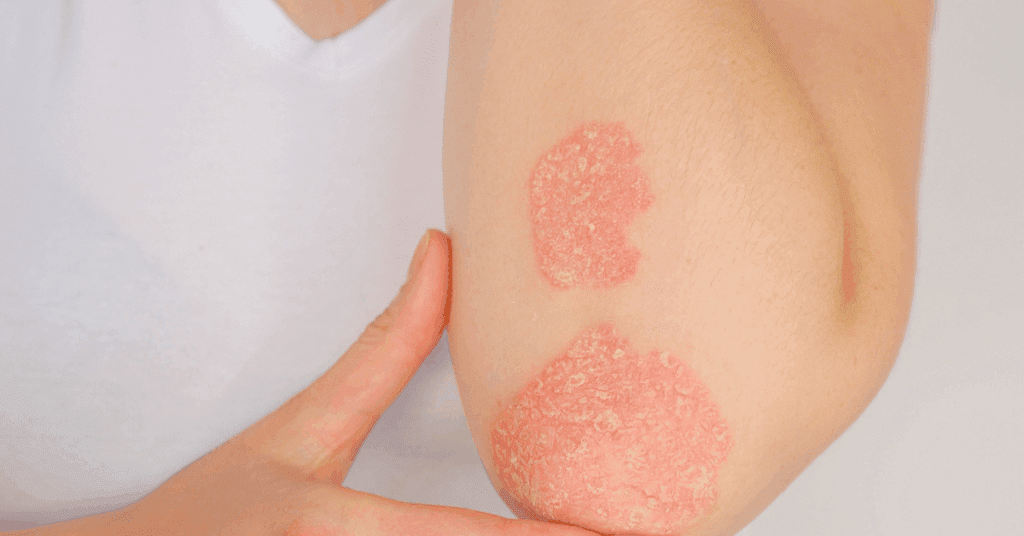FAQs
What is the Ayurvedic treatment for scaly skin?
Ayurveda treatment focuses on restoring skin health through oil massage (abhyanga), detox therapies like Panchakarma, herbal pastes, blood purification, and dietary guidance that balances the doshas.
What causes dry scaly patches on skin?
Dryness can result from Vata imbalance, cold weather, harsh soaps, vitamin deficiencies, or chronic skin diseases like eczema or psoriasis.
What’s a good home remedy for scaly skin?
Applying warm coconut oil daily and using aloe vera gel or neem water rinses can soothe the skin and restore moisture.
Can scaly skin be a sign of psoriasis?
Yes, especially if the patches are thick, silvery, itchy, and persistent. A clinical diagnosis is necessary for confirmation.
Is diet important in scaly skin treatment?
Absolutely. In Ayurveda, what you eat directly affects your skin. Warm, nourishing foods and good hydration help promote healing.
REFERENCES
Gade, A., Matin, T., & Rubenstein, R. (2025).
Xeroderma. [Updated 2023 Oct 29]. In StatPearls [Internet]. Treasure Island (FL): StatPearls Publishing.

Proksch, E., Berardesca, E., Misery, L., Engblom, J., & Bouwstra, J. (2020).
Dry skin management: practical approach in light of latest research on skin structure and function.
Journal of Dermatological Treatment, 31(7), 716–722. doi:10.1080/09546634.2019.1607024.

Ruhul Amin, Völzer, B., El Genedy-Kalyoncu, M., Blume-Peytavi, U., & Kottner, J. (2023).
The prevalence and severity of dry skin and related skin care in older adult residents in institutional long-term care: A cross-sectional study.
Geriatric Nursing, 54, 331–340. doi:10.1016/j.gerinurse.2023.10.032.



